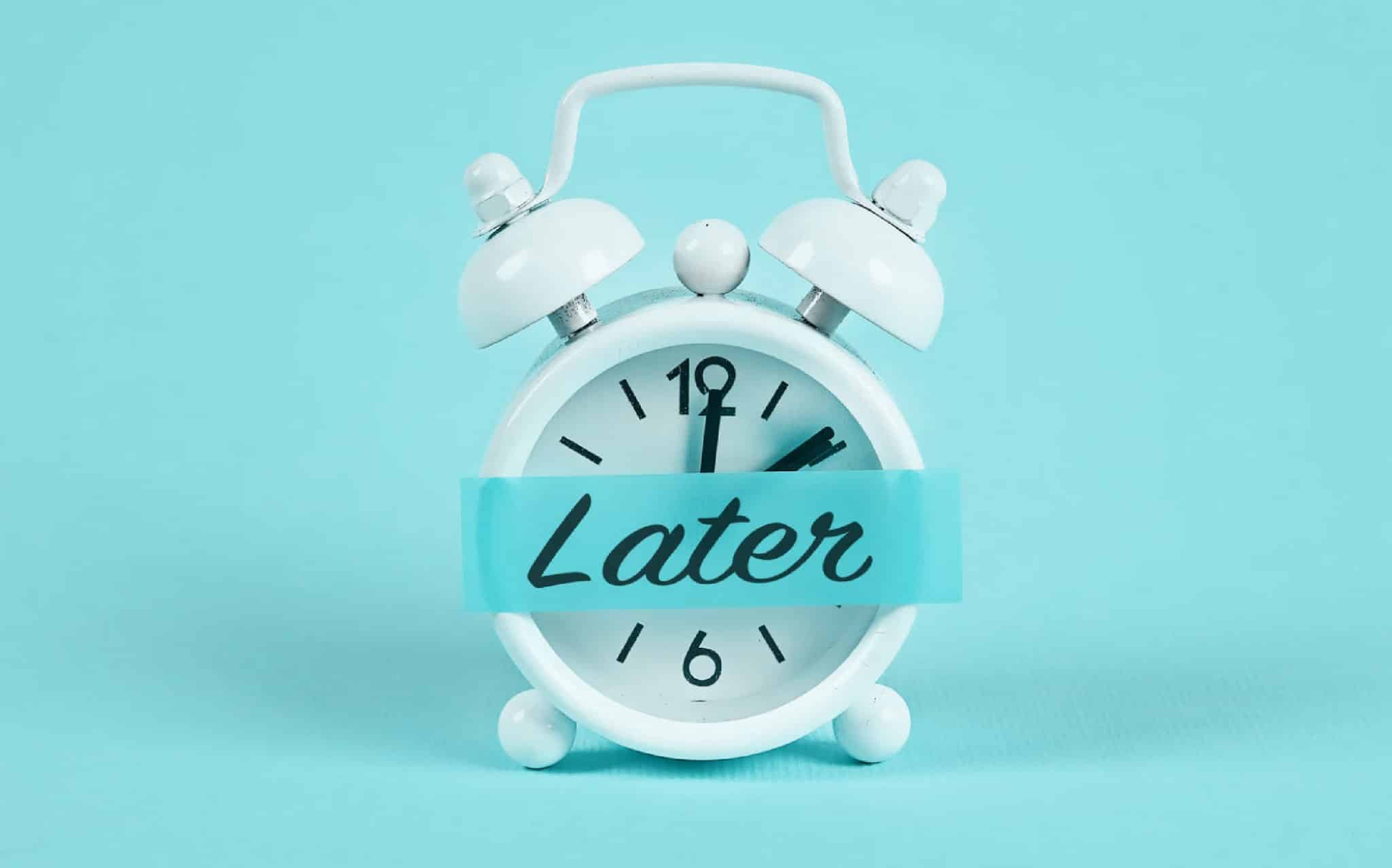Pressing “snooze” on the alarm four times in a row, waiting until the last minute to finish a work deadline, rushing to school to make it on time, delaying paying bills until the due date; are you guilty of these? Certain activities are just more challenging to complete than others. After all, filing your income taxes doesn’t have the same enjoyment factor as watching your favorite Netflix show. Nearly everyone puts off tasks occasionally, known as procrastination, but only 20 percent of adults are chronic procrastinators, which is exponentially higher in college students.
Studies show that around 50% of college students procrastinate consistently and chronically, 75% consider themselves procrastinators, and 80%–95% procrastinate. Sometimes, we push the envelope for deadlines because we work better under stress and pressure, but this doesn’t necessarily mean it is good for our mental health. Procrastination is linked to negative functioning and can affect your mental health. If you are a procrastinator, this may be something to think about.
Procrastination is marked by short-term benefits and long-term consequences. Having an “out of sight, out of mind” mentality can alleviate us of the task at hand, but eventually, it catches up to us and causes more stress than we bargained for. But why do we procrastinate in the first place?
- We are bored: If we find the tasks at hand boring or unpleasant, we are likelier to put them off until later because we would rather do something more enjoyable.
- Lack of self-esteem in our abilities: If we feel as though we are not smart enough, not talented enough, not savvy enough, not experienced enough, or our self-esteem is in the garbage, we are less likely to start a task or carry it through. One of the most important aspects of starting a task and seeing it through is believing in yourself and your ability to do a good job.
- Fear and anxiety: The fear of being judged by others or the anxiety associated with finding a medical diagnosis are common reasons why we choose to procrastinate; we are scared of the outcomes. Not only can this fear and anxiety worsen our procrastination, but it can add to our stress levels.
- Perfectionism: We may delay tasks because we may feel we won’t be good enough at them, or may not be inspired. We may have such high standards, and realizing that we will not meet them can cause a delay in starting our task.
- Distraction: Distractions in life can cause us to put off important tasks. For example, scrolling on our phone or social media can make us forget that we have something important to accomplish.
Procrastination is not a unique character flaw, a sign of laziness, or a mysterious curse on your ability to manage time. Still, procrastination is a poor coping mechanism and can also be labeled as a form of self-harm as it can be self-destructive. Procrastination is a way of coping with challenging emotions and negative moods induced by certain tasks.
In other words, procrastination is an emotion regulation problem, not a time management problem.

Procrastination and Mental Health
Procrastination is tied to poor physical health, unwelcome mental health problems, and chronic stress.
Research from 2022 shows that if you chronically procrastinate, you may most likely have higher levels of stress and are more likely to experience acute health problems, such as:
- Insomnia
- Digestive problems
- Muscle tension and pain
Because we procrastinate due to an underlying aversion, whether it is out of boredom, distraction, or low self-esteem, we experience momentary relief when we put off this task. Still, soon after, we develop increased stress and anxiety, worsening self-esteem, and practice ruminative, self-blaming thoughts that are often known as “procrastinatory cognitions.” This angry cycle continues, and over time, it costs us our productivity, which means poor job or school performance, which can have devastating effects, especially if we lose our jobs or fail out of school.
Chronic procrastination can also devastate our mental health and contribute to worsening depression and anxiety, low life satisfaction, and poor impulse control. Procrastination can also be an underlying sign associated with a mental health disorder you may or may not be diagnosed with. For example, individuals with depression often lack the motivation and energy to accomplish tasks, even if they are simple.
If you have ADHD, you most likely struggle with concentration and paying attention. You may start a task and move on to another without completing the initial task. If you are living with anxiety, tasks often seem daunting and overwhelming.
How can I get help?
Suppose you struggle with procrastination to the point that it is affecting your everyday life. In that case, you may benefit from speaking with a therapist, as you can have an underlying mental health condition. It also may help to learn tips from your therapist to improve your workflow and overcome your procrastination in hopes that you can live a less stressful life.
Acknowledging you have a problem with procrastination, having someone hold you accountable, practicing positive self-talk, regaining your self-esteem, starting projects in bite-sized chunks, rewarding yourself for any progress, and speaking to a therapist are all steps in the right direction to counteract procrastination.




